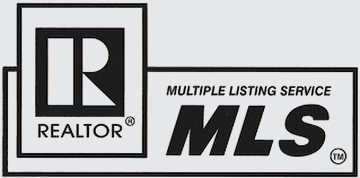Buying a house is a big undertaking, and it can be a stressful one. Not only do you have to ensure that your future home fits your taste, family size, and budget, there are a variety of unknowns that might impact the value of the home you’re purchasing.
The key to keeping stress down and sidestepping future problems? Ask questions. The more you know about a house’s real situation, the fairer a deal you can get and the more stress-free your experience will be. Here are 7 questions to ask.
What’s nearby?
It’s a famous real estate adage: location, location, location. The location of your house is the number one thing to consider before buying it. You can always add or subtract amenities, but if your home is located near a sewage plant, power plant, busy highway, or noisy train station, you’re in trouble. Make sure to scout out the area ahead of time so that you know what’s there and what isn’t. On the positive side, you may discover that the house is located in a good school district—a great advantage, even if you don’t have kids, as it bumps the home’s value—or near a park, lake, or community center. While you’re exploring, be sure to find out what essentials are nearby, like the local bank, gas station, pharmacy, and grocery store.
Why is the owner selling?
This is the kicker, and though there usually isn’t some scary secret reason behind an owner’s move, it’s important to ask anyway. If the owner is moving overseas, he or she might be under pressure to sell quickly, and therefore be more willing to accept a lower offer. You might also want to ask if the new owner has found another home yet. If they themselves have a new house set up and ready to go, they might be willing to negotiate a lower price; if they haven’t, it might mean a longer sale period and more uncertainty for potential buyers. The real estate agent isn’t required to answer these questions, and may genuinely not know the answers, but it doesn’t hurt to ask.
What’s the recent history of the house?
Again, most homes don’t have secret, shady pasts—but it’s a good idea to find out as much as you can about a house’s timeline, anyway. Start off with the recent history under the current owner: how long have they lived there? Has the property changed hands a lot? How long has the property been on the market? If the owner hasn’t lived there for a very long time, it might indicate problems prompting them to move, such as noisy neighbors. If the house has been on the market for a while, the owner might be more willing to accept a lower price.
What’s the earlier history of the house?
Though unlikely, there’s always the possibility that you could be moving into what realtors call a “stigmatized house”. This is a home that has been the site of something unsavory, like a murder, suicide, accidental death, or notorious crime. You may even be investigating a house that has been accused of paranormal activity! None of this is necessarily a bad thing, depending on the type of person you are. A stigmatized house gives you great negotiating power, as typically these houses sell for as much as 25% below market value. Whether good or bad, you can find out more about the home’s history by consulting police records, reading news reports, and speaking to the locals.
Exactly what are you buying?
Make sure to ask what’s included in the sale, even if it seems obvious. Have the real estate agent indicate the exact lines of the property, including features that might be shared with neighbors, like a driveway. If the home has a garden shed, greenhouse, or garage, ask if it’s included in the sale—it usually is, but you don’t want any surprises.
Is it priced fairly?
Of course, you’ll want to know if the house is at a fair asking price for the location and condition it’s in. You can easily find out what other nearby homes are selling for by looking at online listings or visiting houses in person. If you’re working with a buyer’s agent like those at Price Realty, he or she will be able to give you a fair answer as to what the house is truly worth. (Remember, a real estate agent is working for the seller, not you, and the answer you receive may be less honest.)
Are there any maintenance issues?
It’s not unusual for homeowners to encounter maintenance issues within the first couple of months of living in a home—in fact, it’s unusual when they don’t. An official assessment by a home inspector is the smartest way to go, but in the meantime, there are things which you can look for as a layperson. Try the taps in the bathroom to check for leaks and water pressure. Search around appliances and under cabinets for signs of water damage or mold. Ask questions about the age and condition of the water heater, septic system, wiring, and heating systems.




